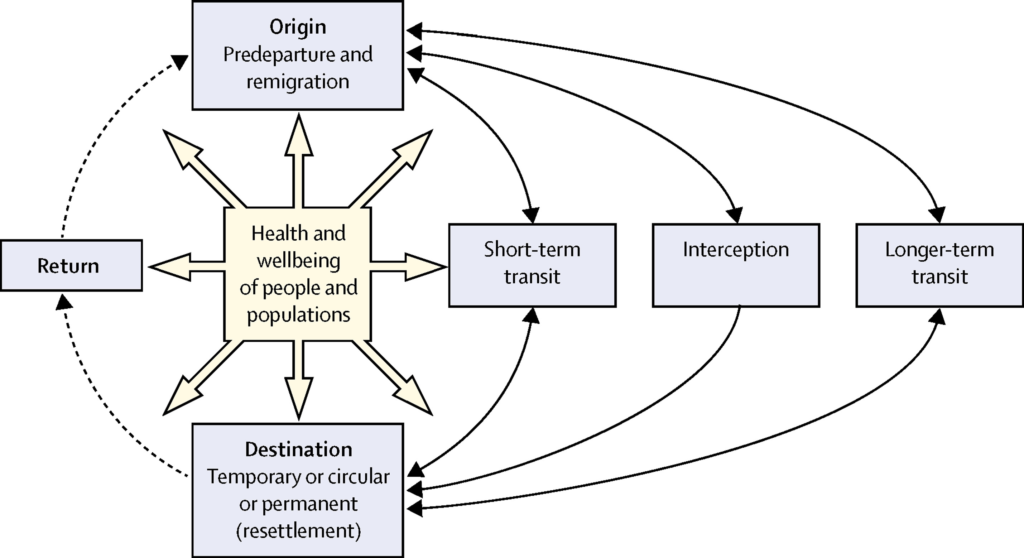Every year, thousands of immigrants living in the United States silently face an emotional and life-altering choice. Immigrants weigh health coverage against deportation risk, fearing that using public medical services might increase the chance of being reported to immigration authorities. It’s a dilemma that combines legal confusion, emotional stress, and dangerous health consequences.
While the U.S. health system is built on the promise of care for all, many undocumented immigrants feel excluded. They often skip doctor visits, leave chronic conditions untreated, or even refuse emergency services due to fear. Behind these decisions lies the growing anxiety that seeking help might lead to deportation, family separation, or long-term legal barriers.
Why Immigrants Avoid Health Services
The major concern for many immigrants is the “public charge” rule, a policy that has changed several times over the years. It suggests that people who use government-funded services might be considered a burden on society and thus denied a green card or visa. Even though this rule was officially relaxed in 2021, confusion still surrounds it.
Most immigrants do not know whether using Medicaid, food stamps, or emergency services will impact their legal status. Immigrants weigh health coverage against deportation risk every time they think of visiting a clinic. The fear is so strong that many parents do not sign up their U.S.-born children for benefits they are legally allowed to receive.
Who Gets Affected the Most?

This issue mainly impacts undocumented immigrants, those with temporary protected status, asylum seekers, and even some legal residents who are not yet citizens. In mixed-status families, where some members are legal citizens and others are not, the situation becomes more complex.
These families may have children who qualify for Medicaid, yet the fear of drawing attention prevents them from applying. Pregnant women delay prenatal care, diabetics go without insulin, and minor issues become life-threatening simply because of fear.
Real Stories, Real Pain
Rosa, a 32-year-old housekeeper from El Salvador, has lived in Texas for over 10 years. Her two children are American citizens. Yet she avoids doctors even when sick. “If I go to the hospital, they might ask for my ID. If they call immigration, I’ll lose everything,” she says.
Her fear is not unfounded. While healthcare workers usually don’t report patients to authorities, the lines feel blurred. It only takes one misunderstanding or one report to turn a hospital visit into a legal disaster.
The Hidden Costs of Avoiding Care
The cost of avoiding health care is much greater than medical bills. When immigrants avoid treatment, they risk letting diseases worsen. Emergency rooms see more advanced cases, costing the system more money and using more resources.
Public health also suffers. During COVID-19, many immigrants avoided testing and vaccination, increasing the risk of spread. Public officials later admitted that immigrants weighing health coverage against deportation risk created serious challenges for health programs.
Avoidance also impacts mental health. Living in constant fear, stress, and silence leads to anxiety, depression, and isolation issues that are rarely treated or even acknowledged.
What Are the Legal Realities?
Under U.S. law, hospitals must treat emergency cases regardless of a person’s immigration status. In theory, visiting a hospital should not lead to deportation. However, there are gray areas.
Data sharing between health agencies and immigration is limited, but not zero. Some immigration forms ask about benefits used. That question alone is enough to scare many people away from applying.
Immigration lawyers agree that while most health services do not impact immigration status, the fear remains because policies are often unclear, change frequently, and are not communicated well to immigrant communities.
What Needs to Change?
Experts say better communication is key. Immigrants need to know which services are safe, which ones affect their status, and how to protect their rights. Clinics and hospitals should also train staff to handle undocumented patients with respect and confidentiality.
Community organizations and legal aid groups can help explain the system clearly. Language barriers, legal complexity, and emotional trauma all make things worse for vulnerable families. If immigrants understood the system better, they might not feel so afraid.
Government’s Role in Solving the Crisis

Governments at all levels must work to reduce the fear around seeking medical help. Official websites should provide updated information in multiple languages. Public health messages should clearly state that visiting a doctor or applying for certain services won’t lead to arrest or deportation.
Health and immigration should be treated as separate fields. When immigrants weigh health coverage against deportation risk, they’re forced to gamble with their life or their legal future. That’s not a choice anyone should have to make.
Some states, like California and New York, have taken steps to offer health insurance to undocumented immigrants. While it’s not a national solution, it provides a model of how local governments can protect the most vulnerable residents.
The Way Forward: Protecting Both Health and Human Rights
The goal should be simple: ensure that people do not have to choose between staying healthy and staying in the country. When immigrants weigh health coverage against deportation risk, society suffers as a whole.
We need policies that protect health, respect human dignity, and ensure safety. That means separating health data from immigration tracking, expanding safe health options, and educating immigrant families about their rights.
Every human being deserves care without fear. Only when fear is removed from the equation can true public health be achieved.
Also Read – Health Warning No Safe Amount of Processed Meat Exists Says New Study



